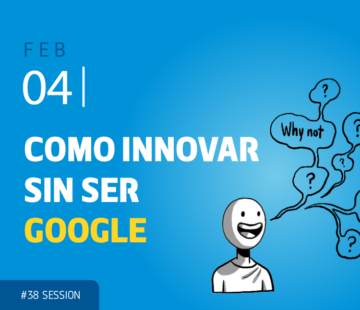Knowmads “in-residence” could spark corporate innovation

Most of so called coworking spaces are still much more a space than co-work. Besides the appealing social element used in marketing claims, a coworking space is quite often just an excellent cost-efficient option for freelance professionals to share the costs of rent, energy, connectivity and other elements needed in an office to work at. And that’s fine.
Dutch “Seats to Meet” (S2M) is a workspace provider with a twist. S2M’s value proposition for independent professionals includes trying to really not to let to serendipity to be able to unleash their creative powers and easily connect and collaborate with others. S2M works as any other workspace provider offering access to innovative workspaces and meetingspaces of all kinds but with two important innovations.
First, it provides its users with insight into the knowledge and skills of other visitors present at a S2M location. For this to happen, they ask their guests to identify their expertise when reserving a workspace. This allows them to match the total knowledge available in the network to those who are in need of this knowledge, bringing the supply and demand of knowledge together. Virtual dashboards and bulletin boards are available to support this process. You can really see the knowledge which is available in real time.
Secondly, seats owner can choose to offer them free of charge. What it really means is that when a “Seats to Meet” user books a seat, he or she is offered the opportunity to pay with financial as well as social capital. Those paying in social capital earn their keep by supporting the projects of both paying and nonpaying members, often through a strategic advice in their area of expertise. In other words, they can pay by sharing their knowledge.
Currently, the organization offers nearly 80,000 seats across its S2M branded locations in six different countries. 1.700 of those are available in exchange for social capital. Seats2Meet’s vast network of permanent and temporary locations often take advantage of excess space in traditional coworking sites but also in event venues, schools, libraries, hospitals, train stations, and other spaces that are otherwise not fully used to capacity.
“Seats to Meet” approach to coworking spaces implies several interesting insights. The choice regarding the location to work at could be no longer (only) dependent on geographical preferences, but on the knowledge and skills available at the location. More than a mere way to reduce costs, using a coworking space becomes a transformation towards a new way of working, collaboration and value creation.
But this to be really disruptive would imply perhaps a next innovative step including traditional corporative offices in this kind of knowledge network ; “free” workspaces at organizations interested in being inspired or “pollinated” by the fresh knowledge, network, expertise and enthusiasm of digital knowmads “in residence” to add value to a greater good.
